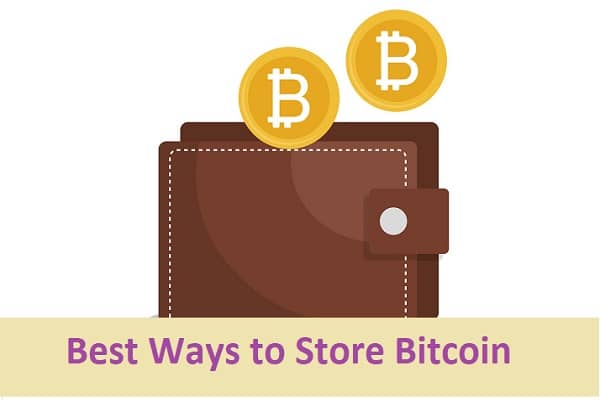Much like we send money and coins inside a physical pocket, bitcoins are often kept inside a wallet—an electronic wallet. The digital wallet could be based on hardware and web based. The wallet may be stored on a cell, on a laptop screen, or stored safely by copying the encryption information and emails needed to open the wallet onto the file. And how secure is one of such digital wallets? The strategy relies on where the wallets are handled by the owner. Every wallet requires a pair of hidden keys; instead of that, the Bitcoin owner also must monitor the currency.
A significant concern in protecting Bitcoin is whether an average user might lose encryption data and be looted of a security code. Even without a security code, the owner cannot see his bitcoins ever. Besides missing a secret key, a person may even waste a bitcoin due to device malfunctions, malware, or physically missing hardware where another digital wallet lives. At bit trader, you can learn more about living with cryptocurrency.
Hot Wallets
Internet wallets are often classified as hot wallets. Hot wallets often run-on computers connecting to the web, such as computers, smartphones, and tablets. This can build a risk since these wallets produce login details to tokens on such computers connected to the internet. Whereas a hot wallet can become very useful in the sense you can quickly obtain and purchase items with your money, it still lacks stability.
This could seem far-fetched; however, citizens who do not use adequate encryption while utilizing such hot wallets might get their money stolen. That was not an uncommon phenomenon, and it could develop in a variety of cases. As an alternative, bragging on a popular platform like Reddit over how often bitcoin you carry when you’re utilizing next to no encryption and keeping it inside a hot wallet wouldn’t be smart.
These wallets are intended to be used for small amounts of cryptocurrencies. You may as well describe a hot wallet toward a bank account. Traditional banks theory would claim that you must pay funds on even a check payment because the rest of your cash is on bank accounts and other financial investments. A similar can be said regarding hot wallets. Hot wallets have a tablet, a mobile, a system, and many security wallets.
Also read: How Bitcoin Exchange Works: Everything You Need to Know
Cold Wallets
The following forms of wallet, and thus the best storage choice, are cold wallets. The general form of a cold wallet is a wallet that may not be connected to the internet and is therefore far less probable to be stolen. Such wallets could even be related to offline wallets and software wallets. These wallets hold the location of the consumer as well as the secret key on anything which is not linked to the web and usually come with functionality that operates in combination such that the people can access their profile without placing their secret key in danger.
Probably the safest way to hold cryptocurrency offline is a wallet with a document. A paper wallet is also a cold wallet that could be rendered from specific websites. This then generates both private and public keys that you copy on a sheet of document. The ability to utilize bitcoin within those accounts is possible if you have got a piece of paper. Sometimes citizens insert such wallets and place them in secure deposit bags at their banks or sometimes safe in their house. Paper wallets do not have a matching user experience other than a sheet of paper and the ledger itself.
A mechanical wallet is usually a USB stick unit that holds secret keys to the user safely. These have severe advantages towards hot wallets and are not infected by ransomware that may be on your computer, as tickets seldom meet your machine-connected system or, likely, unsafe apps. These systems are often open source, making it easier for the world to evaluate the protection rather than for the organization to state that it is secure to use.
Cold wallets are now the best way to put the bitcoins and other currencies. This is worth remembering that keeping cryptocurrency inside an exchanging wallet isn’t quite the same thing as having this in your private wallet. Money transfer wallets are adjustment transactions approved by marketplaces. This wallet form isn’t the operator of a secret digital currency key stored in this wallet.





